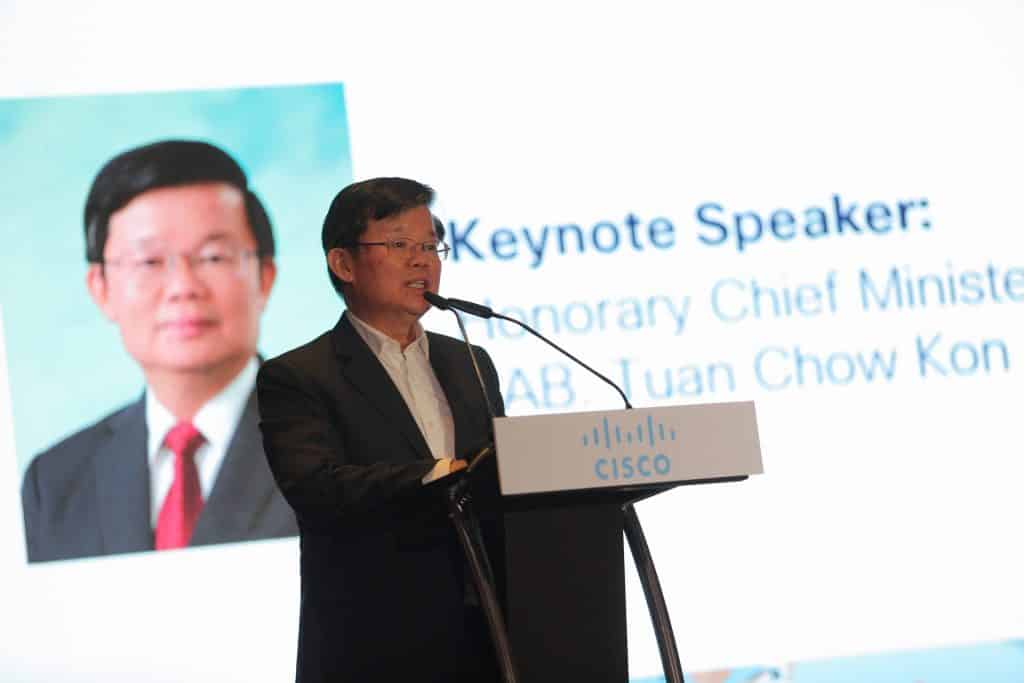By adopting Industry 4.0 technologies, Malaysia is eyeing growth in productivity gains of up to $30 billion for its manufacturing sector over the next decade.
This was among the findings of a study jointly conducted by A. T. Kearney and Cisco.
At the release of the results of the study titled “Accelerating 4IR in ASEAN: An Action Plan for Manufacturers” in Penang on April 30, 2019, Chow Kon Yeow, the Chief Minister of Penang, disclosed that work is already underway with Penang 2030, an action plan for balanced development that the government launched last year.
“As one of the key manufacturing hubs in Malaysia, it is imperative for Penang to lead the way in Industry 4.0 efforts,” the minister said. “With the support of companies like Cisco, I am confident of incorporating 4IR technologies to prepare for the next era of human-machine collaborations and to realize our vision for a digital future.”

4IR refers to the five technologies that underpin the fourth industrial revolution (Industry 4.0) — internet of things (IoT), artificial intelligence (AI), 3D printing, advanced robotics, and wearables.
However, the study showed that manufacturers across the ASEAN (Association of Southeast Asian Nations) bloc, including those in Malaysia, are in the early stages of their digital journey.
“They are operating in an outdated model, and the adoption of 4IR technologies remains slow and patchy,” the study noted.
This was attributed to, among others, enduring low labor costs, no immediate customer demand, difficulties in accessing required experts, a complex and fragmented supplier ecosystem, and unclear and short-term oriented business cases.
According to Malaysia’s Department of Statistics, the value of the gross output of the country’s manufacturing sector was MYR1,275.8 billion in 2017 and employed 2.2 million people.
“Manufacturing is a core driver of economic growth for Malaysia. Accelerating the adoption of 4IR technologies will ensure that the state maintains its competitive advantage, which has so far relied on relatively low labor cost,” commented Albert Chai, Managing Director, for Cisco Malaysia.
The A.T. Kearney-Cisco study highlights that in adopting 4IR technologies, growth will primarily be driven by productivity gains – increasing between MYR82.71 ($20 billion) to MYR103.3 ($25 billion) and driven by the creation of additional revenue streams through new products and quality improvements.
Hence, it suggests a six-point action plan that can chart the journey for advancement in 4IR for Malaysian manufacturers — focusing on critical pain points, identifying technology use cases, conducting collaborative pilots, building a partner ecosystem, and sustaining the transformation momentum.
It also emphasizes that governments play an important role in driving manufacturing growth.



